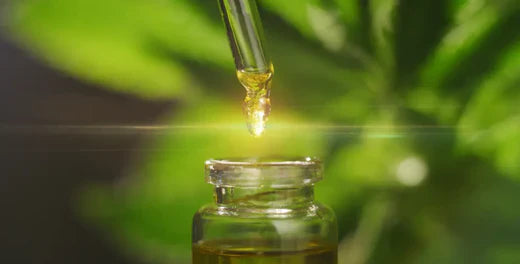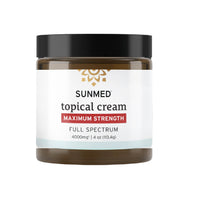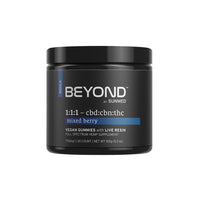Does CBD oil go bad? How to store it safely

CBD oil has become a popular wellness product, known for its potential benefits in reducing feelings of tension, easing discomfort, and promoting relaxation.
However, like many natural products, CBD oil doesn’t last forever.
So, does CBD oil go bad? The short answer is yes — over time, it can lose potency or spoil if not stored properly. In this article, we’ll explore how long CBD oil typically lasts, how to tell if it’s gone bad, and provide essential tips for storing it safely to maximize its shelf life.
What To Know About CBD Oil and Its Shelf Life
CBD oil, derived from the hemp plant, is widely used for its calming and soothing effects. It contains cannabidiol (CBD), a non-psychoactive compound that interacts with the body’s endocannabinoid system to support balance and wellness.
Generally, CBD oil has a shelf life ranging from 12 to 24 months, depending on its quality and how it is stored. Factors such as the extraction method, type of carrier oil, and the presence of additives or preservatives can significantly affect how long the product remains fresh.
If stored correctly, high-quality CBD oil products can maintain their potency and effectiveness for a substantial period.
Over time, the compounds within the oil break down, leading to a loss in potency and effectiveness. Expired CBD oil may not cause harm but is unlikely to offer the same benefits as when fresh.
However, it’s important to differentiate between oil that has simply lost potency and oil that has spoiled due to poor storage conditions or contamination — which could lead to undesirable changes in smell, taste, and appearance.
What Factors Affect the Shelf Life of CBD Oil?
Several factors influence how long CBD oil stays fresh and effective. By understanding these variables, you can make better decisions about how to store your CBD oil to extend its shelf life.
Extraction Method
The way CBD is extracted from the hemp plant plays a significant role in its longevity.
CO2 extraction, widely considered the gold standard, produces a more stable, high-quality product. This method preserves more beneficial compounds, generally resulting in a cleaner, longer-lasting oil.
Other extraction methods, like extraction using solvents, may introduce impurities that can shorten the product’s shelf life.
Ingredients
The type of ingredients in the CBD oil can also affect its shelf life. CBD oil is typically mixed with a carrier oil, such as hemp seed oil, MCT oil, or olive oil, which each have their own expiration dates.
Carrier oils with longer shelf lives, like MCT oil, tend to extend the lifespan of the product. Additionally, oils containing preservatives may last longer than those with only natural ingredients.
Packaging
CBD oil is usually stored in dark-colored glass bottles, and for good reason. Exposure to light and air can degrade the oil’s quality over time, so proper packaging is essential.
Dark glass helps protect the oil from harmful UV rays, while airtight seals prevent oxygen from entering and causing oxidation. Oils in clear bottles or with poor seals are more susceptible to spoiling faster.
Exposure to Heat, Light, and Air
Environmental factors like heat, light, and air exposure can quickly degrade CBD oil. When exposed to high temperatures or direct sunlight, the compounds in the oil can break down, diminishing its potency.
Similarly, repeated exposure to air leads to oxidation, which can make the oil go rancid. For this reason, it’s important to keep CBD oil in a cool, dark place and seal the bottle tightly after each use to prevent exposure to these elements.
What Are Some Signs Your CBD Oil Has Gone Bad?
While CBD oil has a relatively long shelf life, it will eventually degrade over time, especially if not stored properly.
Here are some telltale signs that your CBD oil may have gone bad:
Changes in Smell
One of the most noticeable signs that CBD oil has spoiled is a change in its scent. Fresh CBD oil usually has an earthy, herbal aroma — but when it goes bad, it may take on a rancid or sour odor.
This change in smell is often due to the breakdown of the carrier oil, especially if it contains ingredients like hemp seed or olive oil, which can turn rancid when exposed to air and light.
Changes in Color
CBD oil that has been exposed to too much light or heat may darken over time.
While slight color variations are normal depending on the type of CBD oil (full-spectrum oils are typically darker due to their rich cannabinoid content), significant darkening or cloudiness could indicate that the oil is breaking down. This can happen when the oil has oxidized or when impurities have built up.
Changes in Texture
Fresh CBD oil should be smooth and consistent, but when it starts to degrade, its texture may change.
Spoiled oil can become thicker or develop a cloudy or milky appearance. This change in texture could signal that the oil has been exposed to moisture or heat, causing it to separate or solidify in parts.
Taste Alteration
If the taste of your CBD oil has become unpleasant or different from what it was when you first purchased it, this could be another sign it has gone bad.
While CBD oil has a natural earthy or nutty flavor, expired or rancid oil can taste bitter or sour, making it less palatable. An off taste is a strong indicator that the product is no longer fresh.
Reduced Potency
While CBD oil may not always have visible signs of spoilage, one subtle clue that it has expired is a noticeable reduction in potency.
If you find that your oil is no longer as effective as it once was, this could indicate that the cannabinoids and other active compounds have broken down over time. Even if the oil looks and smells fine, its loss of potency means it's not providing the full benefits.
By regularly checking for these signs, you can avoid using CBD oil that has gone bad and ensure you're getting the most out of your product.
How To Store CBD Oil Properly
Proper storage is essential to maintain the freshness and effectiveness of your CBD oil. By following some simple guidelines, you can extend its shelf life and avoid the disappointment of using oil that has gone bad.
Here are the key steps to storing CBD oil properly:
Store in a Cool, Dark Place
CBD oil is sensitive to heat and light, both of which can break down the cannabinoids and degrade the oil over time. The best way to store CBD oil is in a cool, dark place, away from direct sunlight. Ideal locations include a pantry, cabinet, or drawer that is not exposed to high temperatures.
Avoid placing CBD oil on windowsills, countertops near heat sources like stoves or radiators, or in your car, where heat can cause it to spoil quickly.
Use the Right Container
Always store your CBD oil in its original container, which is usually made of dark-colored glass. The dark glass helps block harmful UV rays that can degrade the oil. Additionally, make sure the bottle is sealed tightly to prevent air from entering.
Air exposure leads to oxidation, which can cause the oil to lose its potency and eventually spoil. If the original container is damaged or misplaced, transfer the oil to another dark, airtight bottle, preferably glass.
Minimize Air Exposure
Oxidation is one of the main reasons CBD oil degrades over time. To prevent this, always ensure that the cap is securely fastened after each use to minimize air exposure. If you're using a dropper, be careful not to leave it open or exposed to the air for too long.
Keeping the bottle tightly sealed will help preserve the oil’s freshness and prevent unwanted moisture from getting inside, which can accelerate spoilage.
Refrigeration: Pros and Cons
Refrigerating CBD oil is an option for those who want to prolong its shelf life, particularly if you live in a hot or humid climate. The cooler temperature slows down the breakdown of cannabinoids and helps prevent the oil from becoming rancid.
However, refrigeration can also cause the oil to thicken or change texture, making it harder to use. If you refrigerate your CBD oil and it thickens, allow it to sit at room temperature for a few minutes before use to return to its original consistency.
While refrigeration isn't necessary for all CBD products, it can be a good option for long-term storage or oils without preservatives.
Avoid Freezing
Freezing CBD oil is generally not recommended, as the extremely low temperatures can affect the oil's consistency and structure.
Freezing may cause the oil to become cloudy or separate when thawed. Additionally, certain compounds in the oil could lose their effectiveness after being frozen and thawed repeatedly. Refrigeration is a better option than freezing if you're looking for long-term storage.
By following these storage tips, you can ensure that your CBD oil stays fresh, effective, and safe for as long as possible. Proper storage preserves the oil’s potency and protects your investment in high-quality CBD products.
Keep Your CBD Fresh With Sunmed's Premium Products
Storing your CBD oil properly is key to ensuring it stays effective. With simple storage practices, you can get the most out of your CBD.
At Sunmed, we pride ourselves on offering high-quality CBD and hemp products crafted with care to ensure long shelf life and maximum benefits. Our oils are made using premium ingredients and come in protective, durable packaging to help them last longer.
With Sunmed’s trusted line of products, you can enjoy consistent wellness support, knowing you're getting the best in the industry.
Sources:
Potency and Therapeutic THC and CBD Ratios: U.S. Cannabis Markets Overshoot | Frontiers
Molecular and Cellular Mechanisms of Action of Cannabidiol | NIH
Processing and extraction methods of medicinal cannabis: a narrative review | NIH
The stability of cannabis and its preparations on storage | NIH













